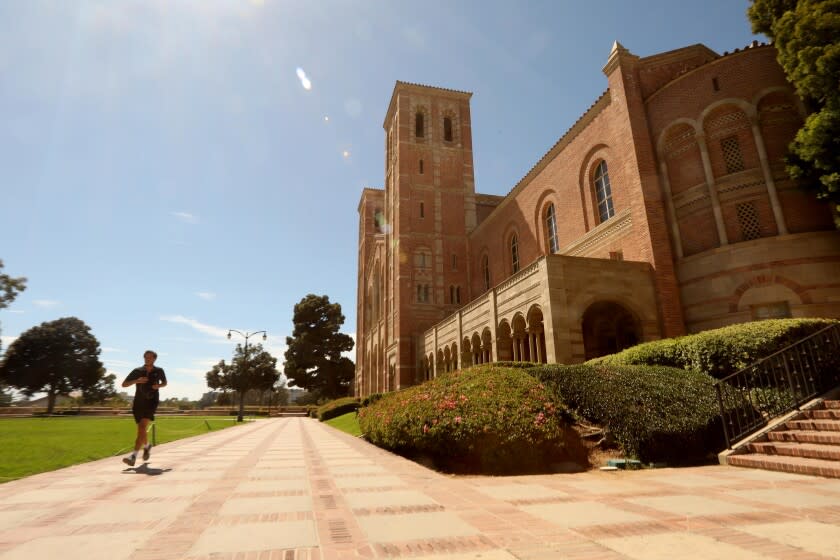Voters reject Prop. 16, which would have allowed affirmative action policies in California

A statewide ballot measure that would allow affirmative action programs to be reinstated in California was rejected by voters in Tuesday's election.
Under Proposition 16, public universities would have been allowed to consider race, sex, color, ethnicity or national origin to address diversity in admissions and other programs. State and local governments also would have been allowed to consider those factors when hiring government employees and awarding government contracts.
The proposition was placed on the ballot by the Democrat-controlled California Legislature to repeal Proposition 209, a highly controversial measure approved by voters in 1996 that barred affirmative action programs in the state.
Supporters of Proposition 16 raised more than $20 million, enough to support an aggressive statewide advertising campaign in the month before election day. Opponents raised roughly $1.5 million, but recent polls showed that the measure has faced strong opposition.
Ward Connerly, a former UC regent who championed Proposition 209 and led efforts to end affirmative action across the country, said California voters saw Proposition 16 as an affront to the principle of fairness.
“[Proponents] still have not persuaded the people that it is OK to discriminate against one group of people in the interest of trying to benefit another,” Connerly said Tuesday night.
Assemblywoman Shirley Weber (D-San Diego) said California voters approved Proposition 209 when California was steeped in political and ethnic division, enflamed by a series of ballot measures in the mid-1990s including Proposition 187 to strip government services from immigrants who entered the country illegally. Weber said the passage of Proposition 209 has set back women and Black, Latino, Asian American and Native American people for generations.
"This change put California out of step with the nation — being one of only eight states that have had this ban on equal opportunity — and serves as an impediment to local and state policies to address the economic and social disparities experienced by women and people of color," said Weber when advocating for the amendment in the Legislature. Weber wrote the legislation for Proposition 16.
Weber argued that research has shown that teacher diversity can have a profound effect on closing the achievement gap for nonwhite students. She also noted that police agencies and schools are barred from recruiting based on race because of Proposition 209.
Tom Campbell, a former Republican congressman from the Bay Area who supported Proposition 209 in 1996, said reinstating affirmative action programs through Proposition 16 would be fundamentally unfair, particularly at the state's public universities — including those in both the University of California and California State University systems.
"I think that if a state keeps somebody out of college or from a contract or employment, because of their race, if they do that, that's wrong," said Campbell, who is now a law professor at Chapman University’s Fowler School of Law and an opponent of Proposition 16.
Campbell said California's universities need to do more to have their student bodies reflect the demographics of California's overall population, including increasing the number of Latino and Black students. But he believes there are ways to do that without enacting racial preferences.
This story originally appeared in Los Angeles Times.

